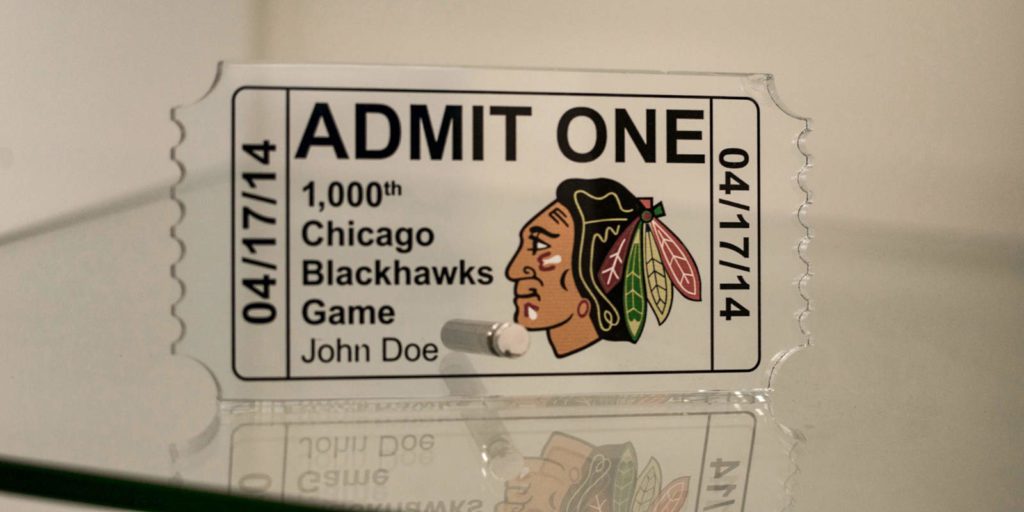Sales incentives: definition, types & ideas
To increase sales is a popular goal for businesses. However, it can be difficult to narrow down a strategy to reach that target. That’s where sales incentives come in to save the day. These strategic rewards motivate team members to accomplish milestones they never achieved before.
At Cristaux, we believe in the powerful effects of recognition and appreciation. Whether we’re designing deal toys or crafting corporate gifts, we go the extra mile to create programs that complement their organizations. To develop sales incentive programs, it’s crucial to understand the definition of a sales incentive and types of rewards. From there, you can explore sales incentive ideas and best practices to create a more detailed vision for your efforts.

Sales incentives: definition
Have you ever asked yourself what the meaning of a sales incentive is? We can offer you a brief definition: Sales incentives are rewards and perks used to motivate sales employees to work harder or to achieve goals. These rewards are more specific than general incentives for employees but share many similarities. Examples of sales rewards include gifts, personalized awards, and paid time off to volunteer.
Why is a sales incentive important?
Sales incentives are important because they help organizations grow. Additionally, they help nurture workplace relationships between sales team members. Consider the benefits below to help structure your sales incentive programs.
Increased employee engagement
With desirable sales incentives in mind, staff members are more energized and more productive. Also, engaged teammates are more satisfied and happier at work. In the long run, this positivity can improve customer satisfaction as well.
Improved employee loyalty
By appealing to staff interests and passions, company leaders make their peers feel more valued and appreciated. This feeling of belonging can inspire employees to stay and flourish with a company. Like other employee recognition programs, sales incentive rewards help decrease employee turnover and increase retention.

Stronger collaboration and competition
Team incentives are especially good for strengthening collaboration and communication between peers. By giving staff added reasons and perks to working harder together, a business can inspire healthy competition. With improved teamwork, a company can uplift workplace relationships, morale, and culture.
The 5 types of sales incentives
Before creating sales incentives, it’s important to take a step back and consider the different types of rewards. One type may achieve your desired goal more easily than others. When it comes to recognition, thinking strategically saves time and resources.
Role-specific
Designed to be individualized, role-specific incentives are made for separate employees and consider differences in experience, responsibilities, and more. This type of reward is inclusive because it meets team members where they’re at in their career. For example, a top-performing salesperson would be assigned a more prestigious goal than a new hire who is still learning the company’s ins and outs.

Split
Split sales incentives divide rewards amongst teammates and encourage people to take on new challenges within a group. Whether divided evenly or portioned according to duties or seniority, this type of sales incentive encourages peers to effectively collaborate to earn the desired reward. When introducing rewards, it’s important to clearly communicate how incentives for employees will be distributed. This way, organizations can show how they prioritize fairness.
Presales
With each day, the customer journey and sales cycle become longer and more complex. Thanks to modern technology, leads can thoroughly research a company before beginning the traditional sales process. A presales incentive program motivates employees to work harder during the presales process. Related activities include prospecting and qualifying leads.
Omnichannel
There are many ways a potential customer can discover a business, especially with state-of-the-art marketing tools. Omnichannel incentives inspire staff to use digital channels in their sales efforts. For instance, managers can reward those who reach out to leads who are engaged with the organization through email newsletters.

Analytics-based
Analytics-based sales incentives use data to determine the incentive program’s strategy. By evaluating business results, organizations can decide on goals for the program and identify employee strengths and areas of improvement. This analytic approach helps set aspirational yet realistic targets that align with estimated demand.
7 sales incentive ideas
With concrete ideas and examples, any organization can create incentives for their salespeople. Inspiration helps clarify visions for recognition programs, motivating your sales team. Consider trying the following sales incentive ideas with your team.
1. Personalized gifts
The most encouraging rewards are ones tailored to an individual and their interests. By creating personalized gifts, organizations make employees feel special. Personal sales incentives include gift cards that align with a recipient’s hobbies, personalized office accessories or mementos, and recognition awards engraved with details of the honoree’s achievement.

|
INCENTIVIZE YOUR SALES TEAM Whether it is a corporate logo cut or a depiction of company culture, a custom branded design can take your recognition to new heights. |
2. Professional development
Professional development is an extremely important asset that job seekers and staff members look for. When made into sales incentives, development opportunities can be created for individuals or teams. For instance, top-performing salespeople can attend a seminar, conference, or classes. Also, high achievers can be granted membership to elite groups dedicated to different fields or industries.
3. Office gadgets
Whether used to ramp up corporate or home offices, tech gadgets and other tools can help improve employee productivity. These items make great sales incentives because they offer staff many benefits. From making team members more comfortable to helping them stay organized, these gadgets help individuals and the whole organization. Examples include a standing desk, headphones, and personalized paper weights.
4. Event tickets
Tickets to special events are exciting for competitive employees. Whether a once-in-a-lifetime occasion or a fun night on the town, unique events inspire staff to work harder. For instance, a business can give tickets to concerts, sporting events, fundraisers, award shows, cooking classes, and more.

5. Company benefits
In the eyes of staff members, company benefits are highly valuable. Many employees would become more engaged and productive if given the chance to earn added paid time off or a VIP parking spot. Other sought-after benefits include discounts and retirement plans.
6. Cash incentives
Cash incentives offer a straightforward, quantifiable reward that directly impacts an employee’s income. They are typically given in the form of commissions, bonuses, or profit-sharing, enabling salespeople to earn more by selling more. Cash rewards as a sales incentive provides immediate gratification, which can be a strong driver or short-term sales boosts.
7. Flexible work arrangements
Flexible work arrangements are becoming an increasingly attractive sales incentive, recognizing the diverse needs and employees’ personal work-life balance preferences. Such arrangements can include options like flexible work hours, compressed workweeks or working from home, encouraging a better work-life balance. This modern approach to structuring work can lead to heightened job satisfaction, lower stress levels, and increased loyalty to the company.
How to set up sales incentive programs: best practices
There is not a cookie-cutter sales incentives program that works for every organization. However, useful tips can help businesses figure out what would be best for their employees while respecting their own capabilities. The proceeding best practices can help narrow the goal of a program, reduce bias, and more.
Get to know employees
To choose truly desirable incentives, organizations should get to know employee interests and passions. By knowing what motivates staff members, companies can choose rewards that greatly appeal to their salespeople. For instance, workplace peers who enjoy vacationing would work hard for a travel voucher.

Use data
Leaders can use data in more ways than one. First, data helps managers better understand staff strengths so that businesses can develop strategic and strength-aligned incentives. Second, data can help identify business results. Unbiased measures can be used to decide who earns one-of-a-kind gifts and custom awards. By using transparent data, sales incentive programs can gain employee trust and respect.
Focus on desired behaviors
The best recognition programs are focused on specific actions and results. By narrowing in on desired behaviors, organizations can design sales incentives that will inspire more of that behavior. For example, managers want their team members to reach out to more leads, so they design incentives for the team members who generate the greatest number of positive leads each week.
Relate to company values and goals
By tying company values and goals into recognition efforts, businesses can use sales incentives to grow all aspects of the company. Also, this can help create a better understanding of and appreciation for company culture, mission, and vision. Consider honoring team members who consistently exemplify company values.

Sales incentives: conclusion
Every day, businesses and sales evolve. However, recognition and rewards are here to stay. With practical tips and examples, any company can build out an effective sales incentive program. At the end of the day, the most important thing is that employees are excited, inspired, and happy at work.
Contact Cristaux to begin designing corporate gifts and awards today.
Sales incentives: FAQs
What is a sales incentive?
A sales incentive is a motivational tool used by companies to encourage and reward sales personnel for achieving specific performance targets. It often takes the form of bonuses, commissions, discounts, or non-monetary rewards. All these sales incentives are designed to boost productivity and foster a competitive spirit within the sales team, ultimately driving increased revenue for the company.
What are good incentives for salespeople?
Good incentives for salespeople include monetary rewards like bonuses and commissions, recognition programs, professional development opportunities, flexible work options, and personalized perks like gym memberships. Non-cash incentives can also be effective, such as voyages or other experiences – especially when tailored to the individual’s interests. They can enhance motivation and job satisfaction, leading to improved performance.
What are the 5 types of incentives?
Overall, there are 5 types of sales incentives:
- Role-specific incentives are rewards designed to motivate individual salespeople.
- Split incentives are rewards that are distributed among sales team members.
- Presales incentives are rewards for salespeople before the sales process.
- Omnichannel incentives are designed to motivate sales teams across various selling platforms.
- Analytics-based incentives are data-driven reward systems to motivate sales behavior.
What is the most common form of incentive for salespeople?
The most common form of incentive for salespeople is monetary compensation, typically through commissions, where a percentage of the sales generated by the salesperson is earned as income. This direct financial reward aligns the salesperson’s goals within the company’s revenue objectives, providing a clear and measurable incentive to close sales and increase personal and company profits.
